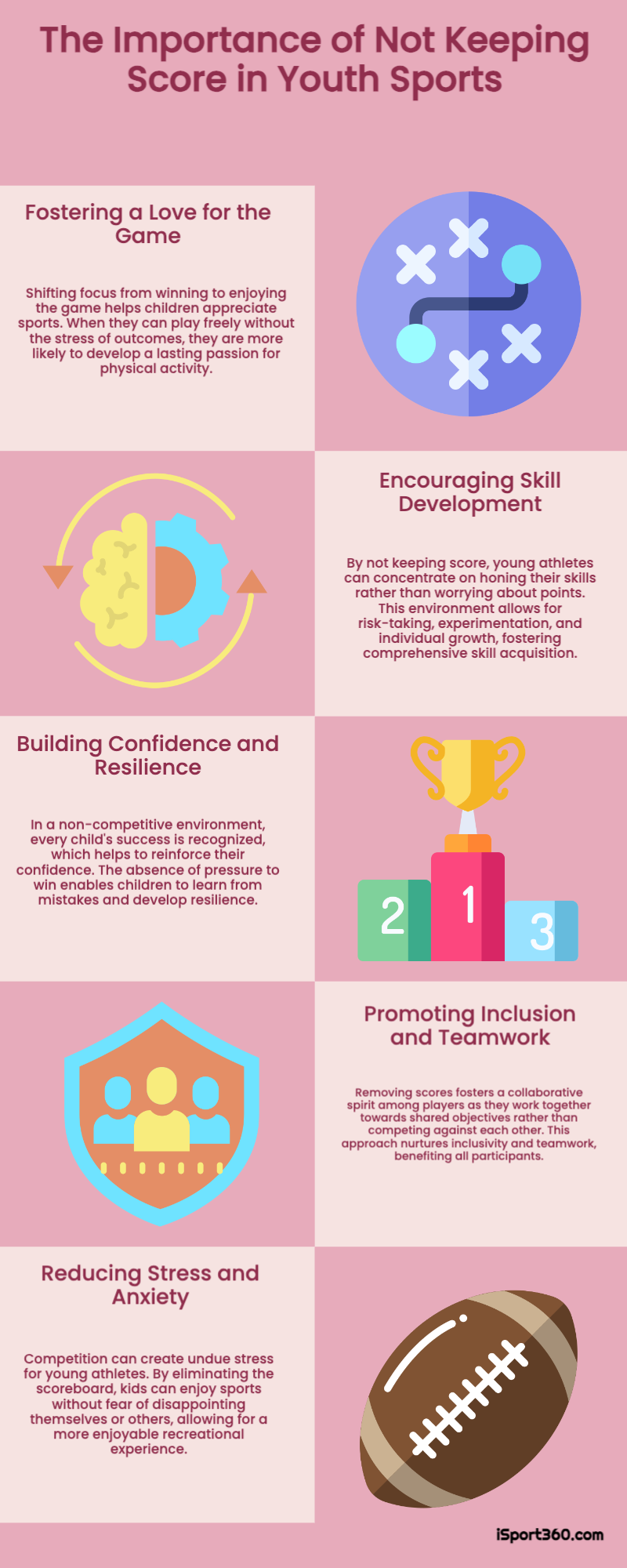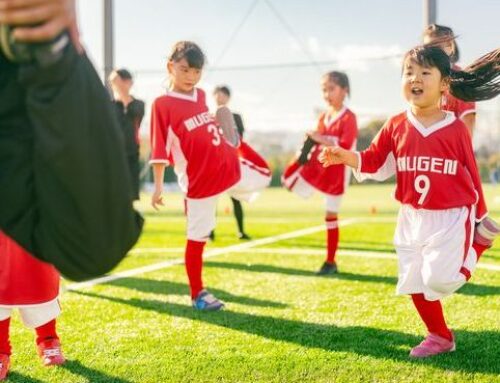Get our exclusive report. Download the iSport360 Club Switching Report Here – For Club Admins, Rec Leaders and Coaches.
Let Kids Play: The Value of Not Keeping Score in Youth Sports
In youth sports, keeping score has long been seen as a natural part of the game. Winning and losing are often considered essential lessons in competition. But more programs are choosing not to keep score, especially for younger athletes and the benefits are worth exploring. By focusing on play instead of points, children can experience the joy of the game, build essential life skills, and develop a love for sports that lasts a lifetime.
Here’s why not keeping score in youth sports can be a game-changer.

1. Fostering a Love for the Game
When the focus shifts from winning to playing, kids are free to enjoy the experience without the pressure of outcomes. They can celebrate the simple joys of running, kicking, passing, and learning new skills. Without the constant reminder of who’s winning or losing, children are more likely to fall in love with the sport itself, which is crucial for long-term participation and a healthy lifestyle.
Kids who play for fun often stay in sports longer, leading to improved physical fitness and a lifelong appreciation for physical activity.
2. Encouraging Skill Development
Without the distraction of a scoreboard, young athletes can concentrate on developing their skills rather than focusing on scoring points. They’re more likely to experiment, take risks, and make mistakes—essential components of learning.
Coaches can emphasize individual growth, teamwork, and effort over outcomes, which creates an environment where kids feel safe to try new things. Over time, this approach can lead to better skill acquisition and a deeper understanding of the game.
3. Building Confidence and Resilience
In games where the score doesn’t matter, every child has the opportunity to experience success. Whether it’s making a great pass, improving a dribble, or simply having fun with friends, each achievement is celebrated. This helps build confidence and self-esteem.
Without the pressure of winning or the fear of losing, kids learn to bounce back from mistakes, embrace challenges, and develop resilience—qualities that are vital both on and off the field.
4. Promoting Inclusion and Teamwork
When scores are removed, the emphasis shifts to teamwork and cooperation. Players work together to achieve shared goals, like completing a series of passes or supporting each other on defense, rather than focusing solely on the final result.
This creates an inclusive atmosphere where every player, regardless of skill level, feels valued. Children learn that success is about collaboration and effort rather than individual accolades.
5. Reducing Stress and Anxiety
Competition can be stressful, especially for young children who may feel pressure from parents, coaches, or even themselves to perform well. Not keeping score alleviates much of this stress, allowing kids to play with a sense of freedom and joy.
Without the fear of letting down teammates or losing the game, kids can focus on having fun, making friends, and simply enjoying the experience of being active.
Conclusion
Not keeping score in youth sports is about more than just numbers—it’s about nurturing a positive, supportive environment where kids can thrive. By focusing on fun, development, and teamwork, we can help young athletes build confidence, learn valuable life skills, and develop a lifelong love for sports.
In the end, the lessons learned on the field—like perseverance, cooperation, and the joy of play—are far more important than the final score. So, let’s let kids be kids, and remember: the best victories in youth sports aren’t measured on a scoreboard but in smiles and memories.
iSport360 is the only app that does it all for youth sports. For more information on what we do, click here.
About the author:
Amy Masters is a sports mom, coach, and club administrator. She has been coaching youth sports for more than 10 years. She started Jr Lions Field Hockey, the youth recreation program for the Hunterdon County community, growing it from 40 players in year 1 to 150 players by year 3. A few years later, she saw the love and competitiveness grow then started Omega Field Hockey Club serving NJ and PA players. Before coaching, she was a collegiate field hockey player for Lock Haven University. In her spare time (lol), she is head of marketing for iSport360 and the co-editor of the Youth Sports Survival Guide. The Youth Sports Survival Guide is the largest youth sports newsletter in the world.
Learn more or request a demo of our youth sports software that is helping teams improve communication, organization and player development.
December 2, 2024





